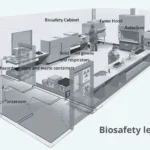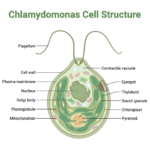Basic Microbiology 13 Views 1 Answers
Sourav Pan🥇 GoldSeptember 4, 2024
Justify — Infection has no influence on the rate of hematopoiesis.
Justify — Infection has no influence on the rate of hematopoiesis.
Please login to save the post
Please login to submit an answer.
Sourav Pan🥇 GoldMay 15, 2025
The statement “Infection has no influence on the rate of hematopoiesis” is generally incorrect. Infections can significantly influence the rate of hematopoiesis, which is the process of producing new blood cells from stem cells in the bone marrow.
Here’s how infections can impact hematopoiesis:
- Increased Demand for Immune Cells: During an infection, the body often requires an increased number of immune cells, such as neutrophils, lymphocytes, and monocytes, to fight off the pathogen. This heightened demand can stimulate hematopoiesis, leading to increased production of these cells.
- Cytokine Release: Infections trigger the release of various cytokines, such as interleukins and tumor necrosis factor (TNF), which can influence hematopoiesis. For example, cytokines like granulocyte-colony stimulating factor (G-CSF) and granulocyte-macrophage colony-stimulating factor (GM-CSF) promote the production of specific types of white blood cells.
- Bone Marrow Response: The bone marrow responds to infections by adjusting the production of different blood cell types. For instance, during severe or chronic infections, there may be a shift towards increased production of certain white blood cells and, in some cases, a temporary decrease in the production of red blood cells or platelets.
- Effects of Severe Infections: In cases of severe or systemic infections, there can be complex interactions where hematopoiesis may be impaired due to factors such as bone marrow suppression or destruction. Chronic infections or sepsis may lead to changes in hematopoiesis and affect blood cell counts.
Thus, infection generally influences hematopoiesis by increasing the production of specific blood cells required for the immune response, and sometimes, it can lead to alterations in hematopoiesis depending on the severity and type of infection.
0
0 likes
- Share on Facebook
- Share on Twitter
- Share on LinkedIn




